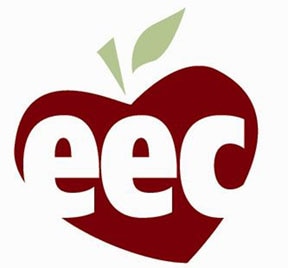- Executive Office of Education
- Department of Elementary and Secondary Education
- Department of Early Education and Care
- Department of Higher Education
- Executive Office of Labor and Workforce Development
Media Contact
Jacqueline Reis
Boston — The Healey-Driscoll Administration today announced the launch of a new online Education-to-Career (E2C) Research and Data Hub to expand public access to education datasets and dashboards, providing a comprehensive look at students across early education and care, elementary and secondary school, higher education, and the workforce. The E2C Hub will serve students and families, educators, policymakers, and researchers by making education and wage data easier to find, use, and understand, and by giving schools data on student academic success and workforce outcomes after graduation.
“Better access to information leads to better decision-making. The new E2C Research and Data Hub will help students and families make informed decisions about college and career, and it will also help researchers and policy leaders to develop higher-quality research, advocacy, and policy analysis,” Governor Maura Healey said. “The E2C Hub provides the data, tools, and support that can help schools and families improve equity and educational outcomes across Massachusetts."
“These data and resources give us a greater understanding of how students and families navigate the public education system and the choices they make for their future,” Lt. Gov. Kim Driscoll said. “Over time, they reveal what programs and investments are working and where we need to focus on creating more opportunity for students.”
The E2C Hub will guide Massachusetts residents to publicly available data tools and resources that can help users choose a school or program, evaluate student and school performance and outcomes, track the impact of education policies, and better understand education spending. The website will connect users to existing state education data dashboards and, for the first time, will enable users to search and download longitudinal datasets containing information on student enrollment, MCAS scores, childcare providers, educators, college tuition, post-secondary outcomes, earnings, and more.
“The new E2C data tools, like the College and Career Outcomes dashboard and the Employment and Earnings dashboard, are critical for identifying programs and pipelines that will allow us to close equity gaps for students,” Education Secretary Patrick A. Tutwiler said. “By working across state agencies, the E2C Hub can help us better observe how our programs, such as Early College and Innovation Pathways, are preparing students for college and careers.”
“Education and workforce development go hand-in-hand, and the E2C Hub demonstrates how meaningful data and research will serve as an accessible resource for rising talent in our schools and future workforce,” said Labor and Workforce Development Secretary Lauren E. Jones. “The Healey-Driscoll Administration is committed to leveraging every tool in our toolbox, and our workforce partners across the Commonwealth will benefit from this new tool as we work collaboratively to build the next generation of talent in Massachusetts.”
In addition to making data tools available, the E2C Hub will publish stories and visualizations drawing on state data to highlight trends, comparisons, and examples of successful program implementation. The E2C Hub’s interactive MCAS Data Explorer will show trends in test results by school, grade, subject, and student group. Recently published data stories delve into staffing increases to support social-emotional learning and mental health and the development of new targets to improve racial equity in public higher education.
“The E2C Hub is a great resource for educators, policymakers, and students,” said Elementary and Secondary Education Commissioner Jeffrey C. Riley. “Having access to easy-to-use data tools to compare different outcomes and different industries’ salaries can lead to better informed choices and more motivated students.”
This gives Massachusetts residents greater access than ever before to explore and use such comprehensive, longitudinal education data from the state. The E2C Hub represents the successful collaboration between the Department of Elementary and Secondary Education, Department of Early Education and Care, Department of Higher Education, and the Executive Office of Labor and Workforce Development. The funds for the E2C Hub came from the federal Institute of Education Sciences’ Statewide Longitudinal Data Systems Grant Program and also include support from DESE. Public data for the E2C Hub are aggregated and contain no personally identifiable information. All data sharing or linking between agencies occurs within a defined legal framework to protect personal data.
“I am grateful for our partnership with sister agencies and secretariats to expand access to accessible and user-friendly government data through the E2C Hub. These new tools will support our diverse network of early educators, families, researchers, and advocates to explore and learn about the system of early education and care in Massachusetts. EEC is committed to being a data-driven agency, and through our new research and data teams, we look forward to building out our publicly available data in the E2C Hub over time," said Early Education and Care Commissioner Amy Kershaw.
“Educators, researchers, and policymakers evaluating the effectiveness of our programs all will benefit from improved access to statewide longitudinal data,” Higher Education Commissioner Noe Ortega said. “Linking student opportunity to post-secondary outcomes and earnings data, for example, offers tremendous insight into how various student populations are set up for success.”
Learn more about the E2C Hub and explore the data at https://mass.gov/e2c.
###


